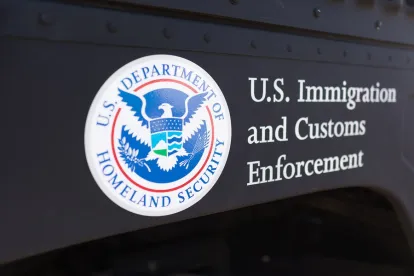The Department of Homeland Security Immigration and Customs Enforcement (ICE) has sent an unprecedented number of I-9 audits, called Notices of Inspection (NOIs), in the previous three weeks reportedly to more than 3,000 companies. At least another 3,000 are likely on the way since ICE has requested (and received) an additional $6.5 million to hire new 27 Junior Compliance Officers (JCOs), some of whom will be staffing four new HSI (Homeland Security Investigation) offices in Charlotte/Charleston, Kansas City, Las Vegas, and Nashville/Louisville.
This hiring surge is part of ICE’s mission to “remov[e] the magnet of illegal employment by targeting egregious employer violations and abuses in both critical infrastructure protection (CIP) business sectors and non-CIP business sectors.” In reality, I-9 audits are an inexpensive way for the government to shift the burden of interior enforcement onto businesses, who bear the cost of replacing valuable workers and, sometimes, paying large fines for mistakes on the Forms I-9. A company receiving an NOI has three days to produce the I-9s for active and terminated employees within the retention time frame. Extensions of the three days are rarely granted.
Acting Director of ICE, Matt Albence, said the goal of the agency’s surge “is to pursue criminal prosecution against those businesses [whose] business model is based upon illegal employment.” Criminal charges companies can face range from crimes for the unauthorized hiring of undocumented workers, harboring, tax evasion, and money laundering to wage and hour violations. Large civil penalties can also be assessed for mistakes on the I-9, ranging from $220 to $2,292 per violation. Employers with unauthorized workers who are discovered during these investigations will be given 10 days to terminate their employment, which can have a devastating impact on the business. Additionally, ICE reportedly may do more “surprise” Targeted Enforcement Investigations – also known as ICE “raids” – based upon tips or information gathered in audits.
In 2018, there were 5,981 audits, up from 1,360 in 2017. This year, 3,282 audits were noticed in just three weeks. Targeted industries include hospitality, agriculture, food processing, landscaping, and construction. Since 2017, ICE has been issuing some of the largest penalties in its history. In September 2017, one company was assessed a $95 million penalty. More recently, ICE arrested more than 200 workers in a raid at a technology company in Texas.
When audits occur, companies can lose employees — overnight —and not necessarily to ICE. Upon hearing that an ICE audit is coming, employees concerned about their documentation may simply no longer show up for work.
How Can You Prepare?
-
Update Form I-9 and hiring protocols
-
Proactively conduct a self-audit of I-9 Forms
-
Educate and train local managers and supervisors involved in hiring and employment verification
-
Work with counsel on action plans, processes, and chain of command in case of an audit or a raid
Most important, do not ignore a NOI from ICE.




 />i
/>i

